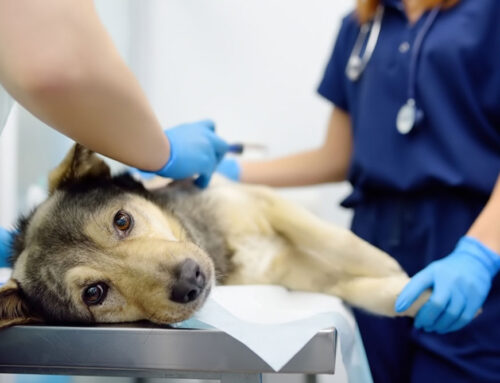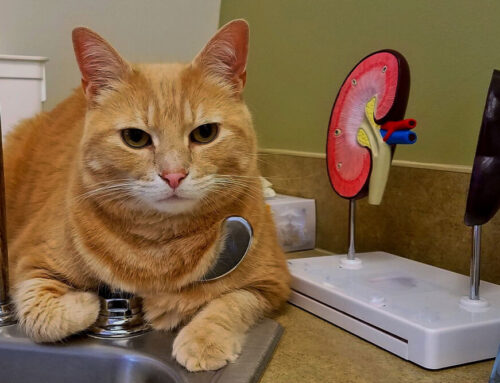Dental disease is one of the most common health issues in pets—and one of the easiest to overlook. At Southern Crossing Animal Hospital in Memphis, Tennessee, we emphasize dental care not just for fresh breath, but to prevent pain, infection, and long-term complications. Here’s why your pet’s oral health deserves a permanent spot on your care checklist.
What Is Pet Dental Disease—and Why It’s More Than Just Bad Breath
Dental disease, also known as periodontal disease, affects the gums, teeth, and the supporting structures of the mouth. It begins when plaque—an invisible film of bacteria—accumulates on the teeth. Over time, it hardens into tartar, which irritates the gums and harbors more bacteria. If left untreated, the infection can deepen, causing tissue damage and tooth loss.
According to the American Animal Hospital Association, oral health plays a critical role in your pet’s overall wellbeing—impacting everything from nutrition to organ function.
What Causes Dental Disease in Pets?
Dental disease develops over time, but several key factors can accelerate it:
- Plaque and tartar buildup from food debris and oral bacteria
- Bacterial infection leading to gum inflammation (gingivitis) and eventually periodontitis
- Dietary habits, especially soft or sugary foods that don’t encourage natural chewing
- Breed predispositions, particularly in small or flat-faced breeds
- Lack of preventive care, such as brushing or professional cleanings
How to Recognize the Signs of Dental Problems
Your pet can’t tell you when their mouth hurts—but the signs are there if you know what to look for:
- Persistent bad breath
- Excessive drooling or reluctance to chew
- Bleeding or swollen gums
- Loose teeth or visible tartar
- Changes in eating habits, including dropping food or chewing on one side
- Facial swelling or pawing at the mouth
- Subtle behavioral shifts, such as irritability or reduced playfulness
These signs can indicate anything from minor irritation to advanced dental disease.
The Progression of Untreated Dental Disease
Without proper care, dental disease advances in severity—from reversible gum inflammation to deep infections and irreversible damage:
- Gingivitis: Early-stage gum inflammation
- Periodontitis: Destruction of the supporting bone and tissue
- Tooth loss: As bone support diminishes, teeth loosen and fall out
- Jaw fractures: In severe cases, bone loss can make the jaw fragile enough to break
Even more concerning, bacteria from the mouth can enter the bloodstream, leading to heart, kidney, or liver issues. Learn more from the AVMA.
What to Expect During a Dental Evaluation
When you schedule a dental exam at Southern Crossing, our team conducts a comprehensive assessment:
- Visual inspection of the gums, teeth, and oral tissues
- Dental X-rays to evaluate tooth roots and jawbone health
(Why X-rays matter) - Anesthesia to ensure your pet remains still, comfortable, and safe throughout the cleaning and any treatment
We use anesthesia not only for safety, but to allow a complete, pain-free cleaning. Here’s why it’s important.
Treatment Options for Dental Disease
Treatment depends on how advanced the dental disease is but may include:
- Professional dental cleaning: Scaling and polishing to remove plaque and tartar
- Extractions: Removing damaged or infected teeth to prevent further complications
- Antibiotics or pain medications as needed
- Home dental care guidance, including brushing and VOHC-approved products
Our goal is to relieve pain, prevent further damage, and get your pet back to feeling their best.
Preventing Dental Problems Before They Start
Dental disease is largely preventable with a proactive approach. Here’s how you can help at home:
- Brush your pet’s teeth daily or several times per week using pet-safe toothpaste
- Provide dental chews or toys to help reduce plaque naturally
- Schedule regular dental checkups and cleanings—just like you would for yourself
- Be alert to changes in your pet’s breath, eating habits, or oral sensitivity

What If Dental Disease Goes Untreated?
Ignoring oral health can lead to painful and costly outcomes:
- Chronic pain and reduced quality of life
- Tooth root abscesses and facial swelling
- Systemic infection affecting the heart, liver, or kidneys
- Oral tumors that may require aggressive treatment (learn more)
Left untreated, dental disease doesn’t just stay in the mouth—it becomes a whole-body problem.
How Dental Disease Affects Your Pet’s Everyday Life
Dental pain doesn’t just hurt—it affects how your pet lives:
- Reluctance to eat favorite foods
- Decreased interest in toys or chewing
- Behavioral shifts like withdrawal or restlessness
- Impact on household routines and relationships with people or other pets
Addressing dental issues can often result in noticeable improvements in your pet’s energy, behavior, and overall comfort.
FAQs: Common Questions from Pet Owners
How often should my pet receive a dental cleaning?
Most pets benefit from annual cleanings, but some breeds or conditions may require more frequent care.
Is anesthesia safe for my pet?
Yes. We follow strict safety protocols and perform pre-anesthetic bloodwork to ensure your pet is healthy enough for the procedure.
Can dental disease impact my pet’s internal organs?
Absolutely. Oral bacteria can spread through the bloodstream and contribute to systemic illnesses.
Your Partner in Pet Wellness
At Southern Crossing Animal Hospital, we believe that dental care is a fundamental part of your pet’s long-term health. Whether you’re noticing signs of a problem or simply want to be proactive, we’re here to guide you every step of the way.
If you have concerns about your pet’s oral health or want to schedule a checkup, contact us today. Together, we can keep those pearly whites—and your pet’s whole body—healthy for years to come.








Leave A Comment